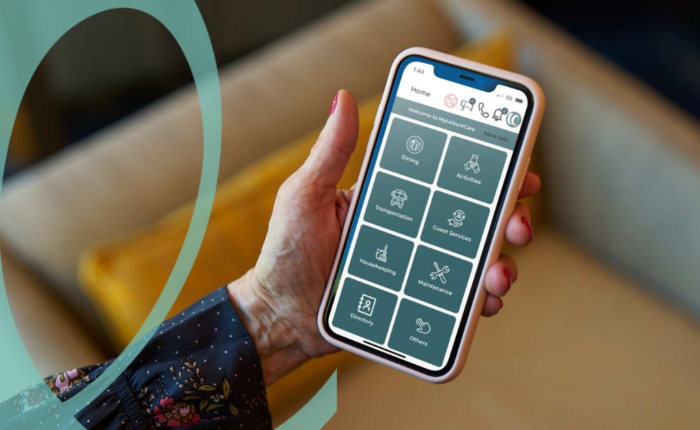
Also known as the “crime of the 21st century,” financial fraud targeting seniors has quadrupled since 2013 with more than $1.7 billion in actual losses or attempted thefts in 2017 alone. Targeting seniors across all income levels, financial scams often go unreported and are difficult to prosecute. However, they can be devastating to seniors and families, leaving them with impoverished with little time to recover from financial loss.
Learn more about senior financial fraud, how to avoid it, and what to do if you or a loved one has been scammed.
Senior Scam Statistics
A recent report from the federal Consumer Financial Protection Bureau (CFPB) found that financial fraud against seniors has been on the rise since 2013, with $1.7 billion in actual loss or attempted theft just in 2017. The CFPB believes that their report only represents a tiny fraction of elderly financial exploitation and suggests “the need for strong and diverse interventions by financial institutions, law enforcement, and social services, as well as the involvement of policymakers.”
Other key findings of the report include:
Experience Leisure Care Senior Living
- On average, victims lost $34,200 each
- 7% of victims lost more than $100,000 each
- Losses were greater when the senior victim knew the suspect, averaging $50,000 compared to $17,000 when the senior victim did not know the suspect.
- 52% of the reports involved money transfers
- 44% of the reports involved a checking or savings account with an average monetary loss of $48,300.
Common Senior Scams
The first step in preventing a scam is knowing what one looks like. These scams are among the most common financial scams affecting seniors.
Health insurance
Posing as a Medicare representative, the scammer will get personal information from the senior and provide a bogus service at a makeshift mobile clinic. The scammer then uses their personal information to bill Medicare and pockets the money.
Prescription drugs
Usually found on the internet, seniors buy cheaper drugs online that are counterfeit. This type of scam is on the rise, from 5 cases a year in the 1990s to an average of 20 cases per year since 2000. In addition to being a financial scam, this type of scam can also cause physical harm because these drugs are fake and not treating real ailments.
Telemarketing
This is perhaps the most common type of senior financial scam. These types of scam are hard to trace and often target the same person repeatedly. The scammer will call a senior and ask for money or claim the senior has won some kind of vacation getaway that amounts to nothing more than a travel scam. Usually, the scammer says that they have a family member in need or they ask for money for a fake charity, often occurring after natural disasters.
Internet
Because seniors are often less familiar with the web, they can be more susceptible to internet scams. Sometimes these happen via email where a scammer will ask for personal information to ‘verify’ information or pretend to be from the IRS asking about a tax refund. Another way scammers use the Internet is through pop-ups that are actually virus’ and open up personal information on a senior’s computer.
5 Tips for Avoiding Senior Scams
1. Be nosy
It can be hard for adult children to know when they are crossing a boundary and invading a loved one’s privacy. Of course we want to be respectful of our senior loved ones and when it comes to preventing financial scams, we need to err on the side of caution. Ask questions about unfamiliar mailings, phone calls, emails, or withdrawals. If your loved one is concerned about financial scams or you have reason to be concerned, ask for access to bank statements and review them regularly.
2. Trust, but verify
If you or your loved one receives a phone call asking for money, do not send it right away. Call around, ask if that person truly is in need. Give people the benefit of the doubt, but do not send money or divulge personal information until you know for a fact what is actually happening.
3. Do not disclose private information online or over the phone
Never ever give out personal information online or over the phone. The IRS will not ask for private information over the phone or in an email. Protect yourself and your loved ones by protecting your personal information.
4. Give directly to charities, not through a third-party
Fake charities tend to pop up following natural disasters, taking advantage of kind-hearted people who want to contribute to another’s time of need. If you have never heard of a charity, do not give to it. If you are approached by someone asking for money for a charity, do not give it. CharityNavigator.org is a great resource for evaluating the trustworthiness of a charity and ensuring your money is going where you think it is going.
5. Be in regular contact with your loved one
The best way to protect against financial scams is by taking a community approach to each other’s wellness. Having open and honest conversations about financial planning and just your day to day happenings can reveal any red flags.
What to Do if You or a Loved One is a Victim of Fraud
If you suspect that you or a loved one has been the victim of a financial scam, stop all contact with the suspected scammer immediately. Stop making payments and call your financial institution and let them know to stop any automated payments.
Reporting Fraud
Additionally, report the fraud. This can help you in the investigation process and help keep others safe. The Federal Trade Commission and The National Fraud Information Center are two resources available to help you file your claim:
Federal Trade Commission: 1-877-FTC-HELP
The Federal Trade Commission (FTC) enforces federal consumer protection laws to help prevent fraud and protect consumers.
The National Fraud Information Center: 1-800-876-7060
The National Fraud Information Center is the nation’s oldest consumer advocacy organization dedicated to promoting the interests of consumers and workers in the U.S. and abroad.
Have you or a loved one been scammed? How do you protect yourself and your loved ones from scams? Share your stories with us in the comments below.
Find a Leisure Care Community
Better with age, exceptional with us! Come and see how Leisure Care communities are helping seniors rediscover (and sometimes reinvent) themselves.








